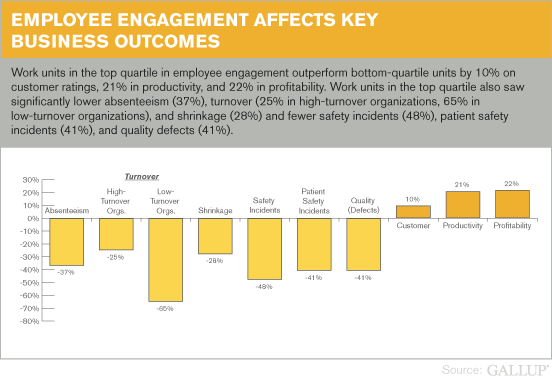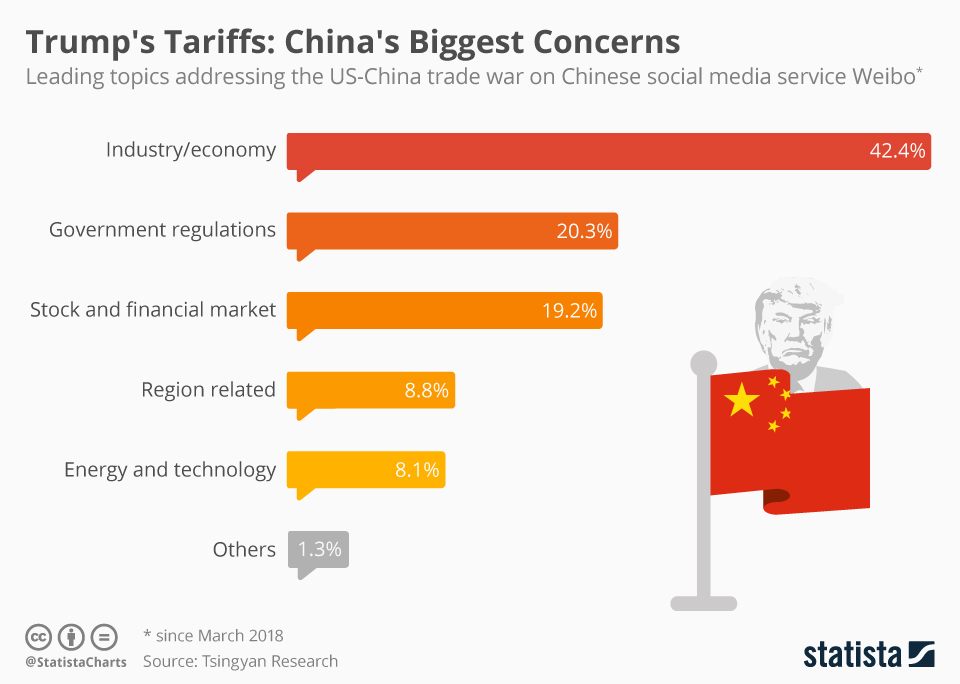Investing In Middle Management: A Key To Employee Engagement And Business Growth

Table of Contents
The Crucial Role of Middle Management in Employee Engagement
Middle managers serve as the vital bridge connecting leadership's vision with the day-to-day realities of employees. Their role extends far beyond simply assigning tasks; they are instrumental in shaping the employee experience and fostering a thriving work environment.
Bridging the Gap Between Leadership and Employees
Effective middle managers translate complex company strategies into clear, actionable goals for their teams. They act as a conduit for feedback, ensuring that the concerns and ideas of employees reach upper management, and that leadership's directives are understood and implemented effectively.
- Effective communication strategies: Regular team meetings, open-door policies, transparent communication channels, and the use of collaborative tools.
- Importance of feedback mechanisms: Implementing regular performance reviews, 360-degree feedback systems, and anonymous suggestion boxes.
- Fostering open dialogue: Creating a safe space for employees to express concerns, share ideas, and provide constructive criticism.
Mentorship and Development
Middle managers play a crucial role in mentoring and developing their team members. They provide guidance, support, and opportunities for growth, fostering a culture of continuous learning and professional development.
- Training programs: Investing in skill-building workshops, online courses, and on-the-job training opportunities for employees.
- Performance reviews: Conducting regular performance appraisals that are constructive, specific, and focused on both strengths and areas for improvement.
- Career development opportunities: Providing mentorship, identifying training needs, and creating pathways for advancement within the organization.
- Fostering a culture of learning and growth: Promoting a growth mindset, encouraging employees to take on new challenges, and celebrating successes.
Creating a Positive and Supportive Work Environment
Middle managers are responsible for cultivating a positive and supportive work environment where employees feel valued, respected, and motivated.
- Team-building activities: Organizing team-building exercises, social events, and collaborative projects to enhance team cohesion.
- Recognition and rewards: Regularly acknowledging and rewarding employees for their contributions and achievements.
- Addressing workplace conflicts effectively: Providing mediation and conflict-resolution support to maintain a harmonious work environment.
- Promoting work-life balance: Encouraging employees to maintain a healthy work-life balance through flexible work arrangements and supportive policies.
The Impact of Investing in Middle Management on Business Growth
The benefits of investing in middle management extend far beyond employee satisfaction; they directly impact the bottom line, contributing to significant business growth.
Improved Employee Retention
Investing in middle management leads to higher employee retention rates, reducing the costly cycle of recruitment and training.
- Reduced recruitment costs: Lower expenses associated with hiring and onboarding new employees.
- Increased productivity: Maintaining a stable and experienced workforce leads to higher productivity levels.
- Maintaining institutional knowledge: Retaining experienced employees preserves valuable organizational knowledge and expertise.
Increased Productivity and Efficiency
Engaged employees, supported by strong middle management, contribute to higher productivity and efficiency across the organization.
- Improved team collaboration: Effective middle managers foster a collaborative environment where teams work together seamlessly.
- Effective delegation: Proper delegation of tasks ensures that workload is distributed evenly and efficiently.
- Streamlined processes: Middle managers identify and address bottlenecks in workflows, improving overall efficiency.
- Meeting project deadlines efficiently: Strong leadership and effective team management contribute to on-time project delivery.
Enhanced Innovation and Creativity
Empowered middle managers can cultivate a culture of innovation and creativity within their teams.
- Encouraging creative problem-solving: Middle managers can provide the space and support for employees to think creatively and develop innovative solutions.
- Providing resources for innovation: Allocating resources, time, and budget for employees to pursue innovative ideas.
- Recognizing and rewarding innovative ideas: Celebrating and rewarding employees who come up with creative and impactful solutions.
Strategies for Investing in Middle Management
Investing in middle management requires a multi-faceted approach that includes targeted training, access to resources, and opportunities for growth.
Targeted Training and Development Programs
Providing specialized training for middle managers in leadership, communication, and management skills is crucial.
- Leadership workshops: Developing workshops focusing on leadership styles, decision-making, and strategic planning.
- Communication skills training: Improving communication effectiveness through training in active listening, clear articulation, and conflict resolution.
- Conflict resolution training: Equipping middle managers with the tools to effectively manage and resolve conflicts within their teams.
- Mentoring programs for middle managers: Pairing experienced managers with newer middle managers to provide guidance and support.
Providing the Right Tools and Resources
Equipping middle managers with the necessary tools and resources is essential for their success.
- Access to relevant software and technology: Providing access to the necessary software and tools to manage their teams and projects effectively.
- Adequate budgets: Allocating sufficient budget to support middle manager initiatives and team projects.
- Clear performance metrics: Establishing clear and measurable performance indicators to track progress and success.
- Supportive HR policies: Implementing supportive HR policies that provide guidance and assistance to middle managers.
Creating Opportunities for Growth and Advancement
Offering career progression opportunities is crucial to retaining talented middle managers.
- Mentorship programs: Providing opportunities for middle managers to receive mentorship from senior leaders.
- Leadership development programs: Offering leadership development programs to enhance leadership skills and prepare for advancement.
- Opportunities for promotion: Creating clear pathways for promotion and advancement within the organization.
- Internal mobility options: Providing opportunities for middle managers to explore different roles and responsibilities within the organization.
Conclusion
Investing in middle management is not merely an expense; it's a strategic investment that yields significant returns in terms of employee engagement and business growth. A strong middle management team, equipped with the right skills, resources, and support, directly contributes to increased productivity, higher employee retention, and enhanced innovation. The link between engaged employees, strong middle management, and overall business success is undeniable. Strengthen your middle management today. Download our free guide, "Building a High-Performing Middle Management Team," to learn more effective strategies for investing in middle management and unlock your business's full potential.

Featured Posts
-
 Maneskins Damiano Davids Jimmy Kimmel Live Performance Radio 94 5 Recap
May 18, 2025
Maneskins Damiano Davids Jimmy Kimmel Live Performance Radio 94 5 Recap
May 18, 2025 -
 Investment Opportunities Locating The Countrys Booming Business Regions
May 18, 2025
Investment Opportunities Locating The Countrys Booming Business Regions
May 18, 2025 -
 The Zuckerberg Trump Dynamic Impacts On Tech And Politics
May 18, 2025
The Zuckerberg Trump Dynamic Impacts On Tech And Politics
May 18, 2025 -
 Hand In Hand In Nyc Dove Cameron And Damiano Davids Public Display Of Affection
May 18, 2025
Hand In Hand In Nyc Dove Cameron And Damiano Davids Public Display Of Affection
May 18, 2025 -
 Russias Peace Proposal A Strategic Miscalculation By Putin
May 18, 2025
Russias Peace Proposal A Strategic Miscalculation By Putin
May 18, 2025
Latest Posts
-
 Economic Uncertainty In Southwest Washington The Implications Of New Tariffs
May 18, 2025
Economic Uncertainty In Southwest Washington The Implications Of New Tariffs
May 18, 2025 -
 Amanda Bynes Only Fans A Deep Dive
May 18, 2025
Amanda Bynes Only Fans A Deep Dive
May 18, 2025 -
 Bbc Three Hd Tv Guide When And Where To Watch Easy A
May 18, 2025
Bbc Three Hd Tv Guide When And Where To Watch Easy A
May 18, 2025 -
 Southwest Washington And The Looming Tariff Threat A Changing Economic Landscape
May 18, 2025
Southwest Washington And The Looming Tariff Threat A Changing Economic Landscape
May 18, 2025 -
 Is Only Fans The Future For Celebrities Amanda Bynes Move
May 18, 2025
Is Only Fans The Future For Celebrities Amanda Bynes Move
May 18, 2025
